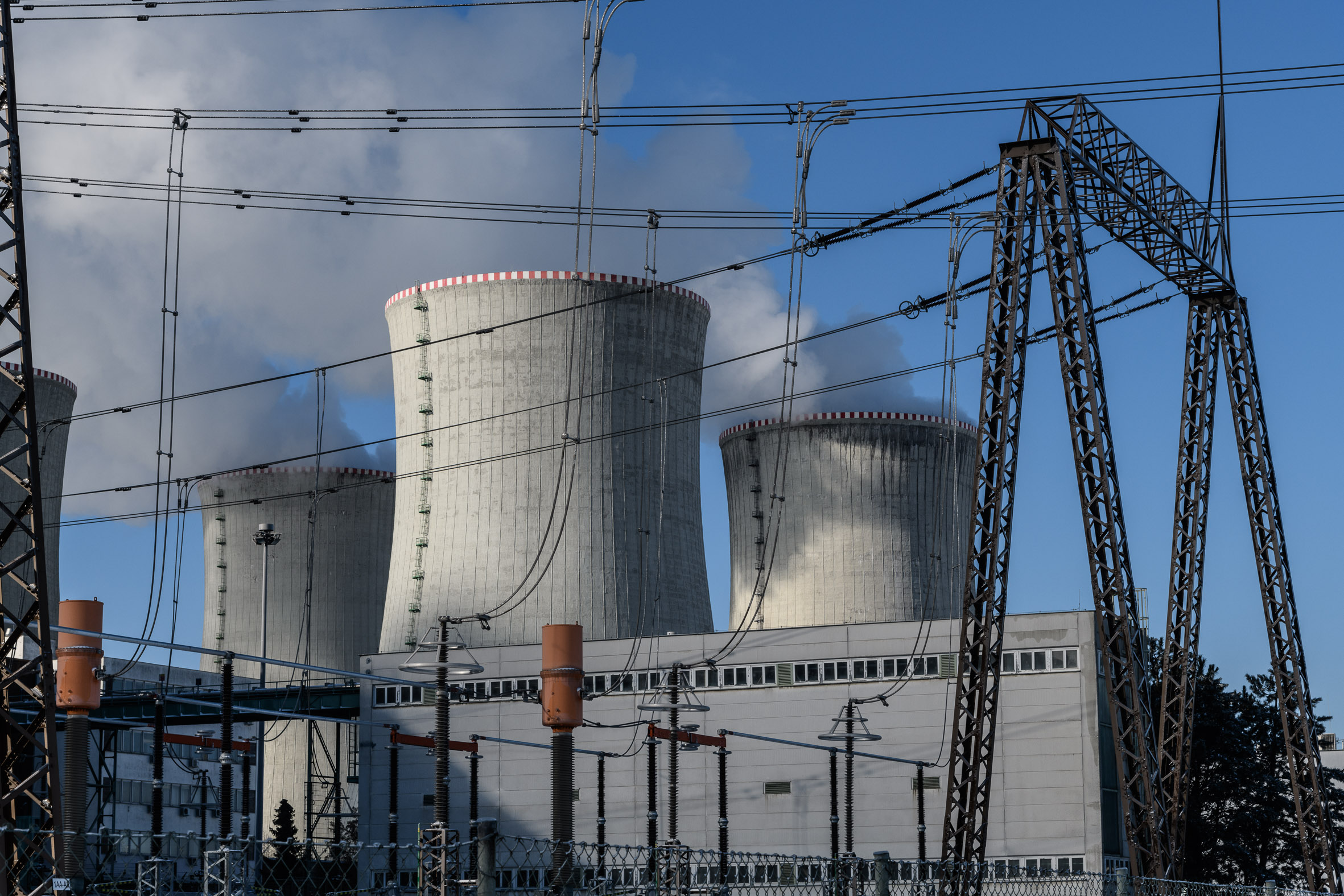 Czech power company ČEZ expects to invest more than CZK2.3bn ($104m) in the Dukovany NPP in 2023, almost CZK500m more than last year. The investments are primarily aimed at ensuring the plant can continue to operate until at least 2047. Dukovany is also switching to 16-month fuel campaigns for all four units and plans to recruit about 100 new employees.
Czech power company ČEZ expects to invest more than CZK2.3bn ($104m) in the Dukovany NPP in 2023, almost CZK500m more than last year. The investments are primarily aimed at ensuring the plant can continue to operate until at least 2047. Dukovany is also switching to 16-month fuel campaigns for all four units and plans to recruit about 100 new employees.
The Czech Republic has six commercially operational reactor units: four Russian designed VVER-440 units at Dukovany site, which began operation between 1985 and 1987, and two VVER-1000 units at Temelín, which began operation in 2000 and 2002. Total installed nuclear capacity is 3934 MWe accounting for 32.5% of electricity generation.
The modernisation of Dukovany will include the restoration and upgrading of both production and non-production equipment. "The investments are aimed at ensuring the safe operation of Dukovany for at least 60 years, even at the cost of more work this year,” says Bohdan Zronek, member of the ČEZ Board of directors and Director of the nuclear power division.
The increased work this year will also mean longer outages. According Dukovany NPP Director Roman Havlin, the most time-consuming and technically demanding project is a project for cleaning steam generators. "Last year, in collaboration with our colleagues from Framatome, we were the first in the world to develop and test a cleaning method that can remove mineral deposits inside the equipment and thus ensure their expected service life," Dukovany has 24 of these steam generators, most of which will undergo cleaning in the coming years.
The four units are also gradually switching from the original 12-month fuel campaigns to 16-months This will significantly increase their efficiency of both operation and maintenance, ČEZ notes.
Zronek told journalists that extended fuel cycles were becoming standard. "Most of the world's power plants operate in 18-month cycles, some even longer," he said.
The longer fuel campaigns will use new PK3 + fuel supplied by Russia’s TVEL. The fuel was delivered to the site last year the plant already has already applied to the State Office for Nuclear Safety (SÚJB) for a licence to use it. The RK 3+ design has enhanced physical and thermo-hydraulic properties compared with previous generations of VVER-440 fuel. It has a longer fuel rod pitch that streamlines the water-uranium ratio in the reactor core and increases the efficiency of the fuel.
Dukovany has been using TVEL’s fuel for 40 years and currently has fuel reserves for at least three years. However, under pressure from the EU and the US, and especially in the wake of Russia’s special military operation in Ukraine, the Czech Republic is looking to diversity its fuel suppliers. From 2024 US-based Westinghouse and France’s Framatome will supply fuel for Temelin NPP. However, as yet, only TVEL can supply fuel for VVER-440 reactors, although Westinghouse is in the process of developing such fuel.
"If we buy it from another supplier, it does not have such a history. This means that the fuel in our country will be usable, it will be safe, but it may have a higher or lower output, we do not know," Havlín explained. SÚJB chairwoman Dana Drábová said last year that she did not expect it would be necessary to change fuel suppliers for the roughly 20 years of operation that remained for the Dukovany plant. She noted that TVEL produces fuel of excellent parameters. "CEZ will have to come to terms with the fact that the fuel from the new supplier will not be optimised for performance, as was the case with the fuel from TVEL."
Nevertheless, a decision to secure fuel supplies from companies other than Russia’s TVEL for Dukovany is expected. "I can't imagine being dependent on just one supplier in the future. Some negotiations are underway, I can't say the details yet," noted Havlín.
Image: Dukovany nuclear power plant (courtesy of CEZ)






